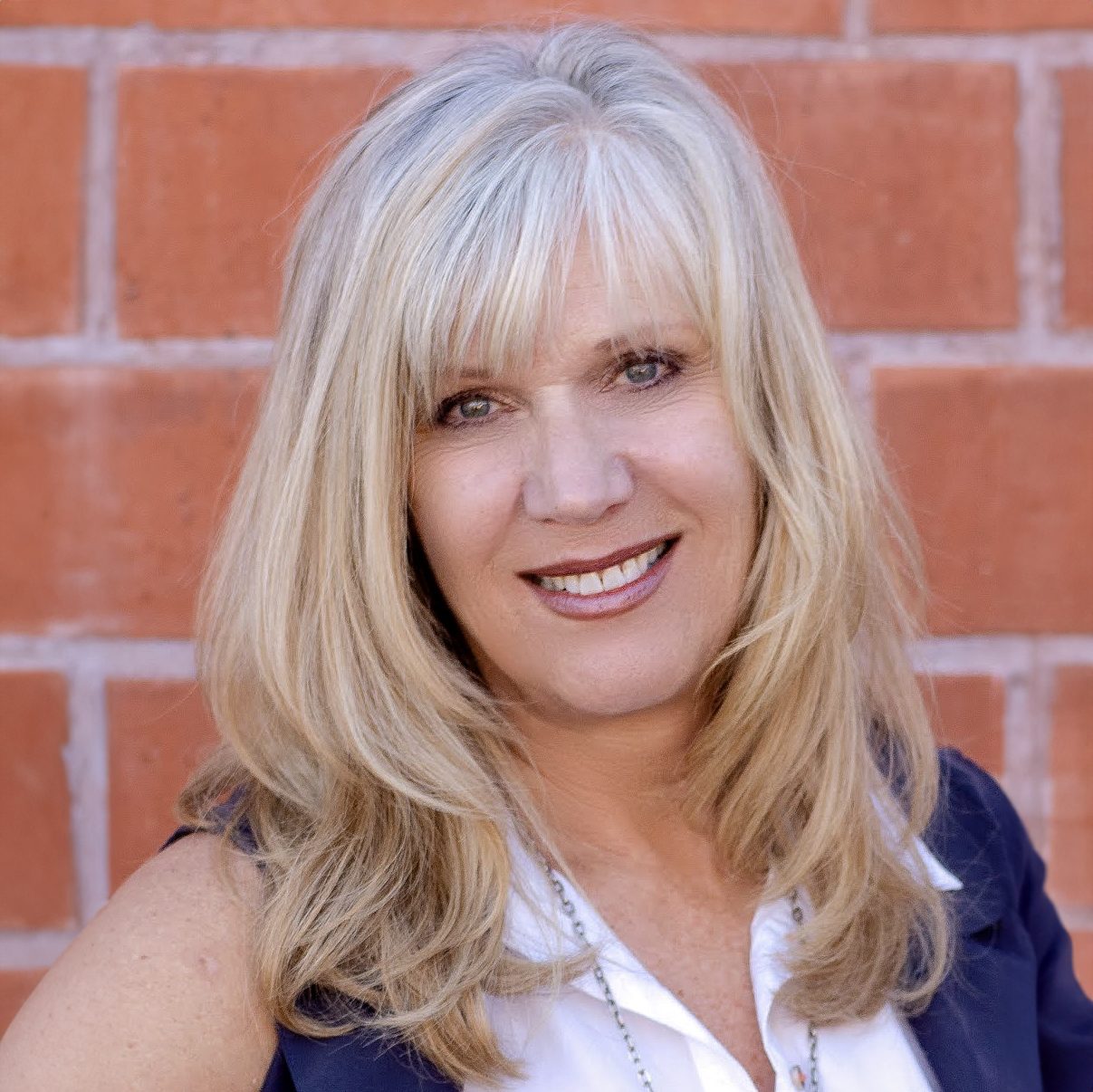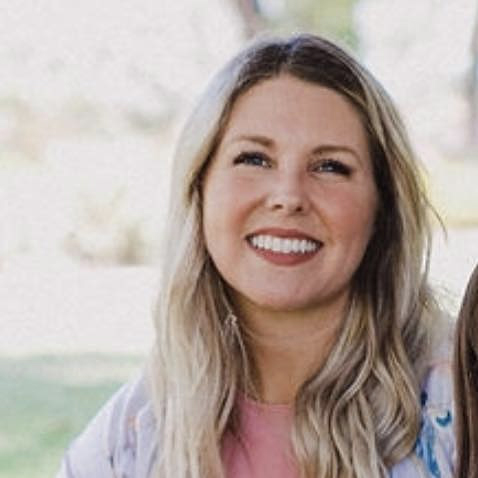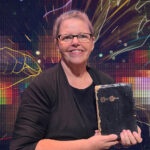By Deb Walkemeyer with Ta’Tyana Leonard and Natalie Iguchi
Deb Walkemeyer:
The older I get the more I realize how much refining I still need in my life, especially when pride raises its ugly head telling me, “I’m living godly enough.”
That lie, that deception is what allowed Peter to model an error counter to the truth until Paul, a newer apostle in the Jesus way, confronted him. Even though Paul had not spent three years being discipled by Jesus, he had been trained enough to recognize Peter’s blind spot of deception. “When I saw that they were not acting in line with the truth of the gospel, I said to Cephas in front of them all, ‘You are a Jew, yet you live like a Gentile and not like a Jew. How is it, then, that you force Gentiles to follow Jewish customs?” (Galatians 2:14). This is the power of cross-generational discipleship.
_
“What can we learn by looking at Jesus and His method of people-investment?”
Deb Walkemeyer
_
In 2015, at an Exponential Global Conference, God grabbed my heart. I was convicted as I heard stories of the power of discipleship — not indirect discipleship methods like Bible studies or Sunday sermons — but direct discipleship that extends over a longer period of time. I wanted in on that! This type of discipleship requires relational investment and insists that my calendar is released from what I deem more important (or at least more immediate), which tends to be managing activities. Don’t get me wrong, the ministry will always require some organizational management, but when the majority of our schedules are filled with tasks rather than “people investment,” I believe there’s a problem. So what can we learn by looking at Jesus and His method of people-investment?
Jesus spent approximately three-fourths of His ministry life apprenticing, discipling, mentoring 12 younger men, as well as those women who traveled with Him. It was intentional, deliberate, and life-changing for His disciples. In fact, a worldwide movement began after Christ’s death and resurrection because of His intentional investment in these people.
I believe there is a great opportunity for the church (especially the Free Methodist Church USA to which I and this article’s co-authors belong) to experience a Spirit-fueled movement if, and only if, every disciple of Christ takes on the task of raising up healthy disciples who will then go and make healthy disciples who will go and do the same thing! This is the multiplication dynamic Jesus called every follower to in Matthew 28:18-20 — “Then Jesus came to them and said, ‘All authority in heaven and on earth has been given to me. Therefore go and make disciples of all nations, baptizing them in the name of the Father and of the Son and of the Holy Spirit, and teaching them to obey everything I have commanded you. And surely I am with you always, to the very end of the age.’”
How can I confidently make this claim that the church in America has the potential to become a movement again? I believe it can happen because of what I have experienced over the past few years. I asked two of the ten incredible, younger female clergy who I have had the joy of mentoring, discipling, apprenticing (whichever word you prefer) through 2023 to share with you. Their poignant honesty reveals the lack we currently see in our churches and many of our leader development methods. You will also read about the impact it has had on their lives as they engaged in a long-term discipleship relationship with an older disciple.
Ta’Tyana Leonard is in the ordination track and serves as a campus pastor at Azusa Pacific University. Ta’Tyana is an accomplished athlete who was recently inducted into the Oregon State Hall of Fame. Beyond her accomplishments, she works hard to be fully present for her young family while serving the Lord.
Ta’Tyana Leonard:
I grew up playing sports and said yes to the call of ministry on my life while a collegiate athlete. My teammates and other athletes were my “mission field,” and my first vocational job opportunities were with athletic parachurch ministries. I found myself in two male-dominated spaces, sports and ministry. Although I had great experiential opportunities to grow as a leader and in hands-on ministry experience, I was often the only woman on the team.
_
“Other women pastors helped me remain rooted in call and identity when my confidence was shaken.”
Ta’Tyana Leonard
_
I’ve dealt with the odd assumptions that I was a spouse of one of my male colleagues or that I was present to take notes or take care of lunch and other hospitality needs. I would often miss chunks of agenda items, while my colleagues continued conversations in the restrooms. These were unintentional, but these frustrating occurrences were hurtful and are what led me to seek out other women in ministry.
These relationships helped to validate my experiences and to see I wasn’t overreacting or being emotional. Other women pastors helped me remain rooted in call and identity when my confidence was shaken. I remember reaching out to a seasoned woman pastor, and, in her response, I knew she just understood me. She gave me advice on how to guard my heart, to not allow ministry to become my identity, and how to also set firm boundaries. I’m grateful for those conversations and care points, because it actually was discipleship.
As disciples of Christ, we should always be in the continuous cycle of being discipled and discipling others. Cross-generational mentorship or discipleship multiplies the church. It also builds the church up in love, as the “equippers” actually equip through sharing knowledge, wisdom, and the platform with emerging leaders.
_
“Even the power of presence can have a substantial impact on our lives.”
Ta’Tyana Leonard
_
Cross-generational mentoring helps us to look beyond ourselves and our limited capacity by investing in other kingdom workers. I’ve had seasons of ministry where I’ve felt like Elijah: “I am the only one of the Lord’s prophets left.” When in reality, God has already called an Elisha to train under you and be your successor. Who are the Elishas among us that we can pour into? Who are the Elijahs among us that we can glean from?
Even the power of presence can have a substantial impact on our lives. I think of Mary and Elizabeth’s relationship. This was definitely a cross-generational relationship; however, they were both experiencing something new together. Neither could provide experiential advice to the other, but they had each other to lean on.
The FMCUSA mentor group has provided both opportunities to receive and pour into others, but it also provided presence, fellowship, connection with other women pastors, and I’ve already tapped into the wisdom and resources of the group. It’s a beautiful reminder that everything we need is available within the body of Christ
Deb Walkemeyer:
Another ordained elder in the FMCUSA is Natalie Iguchi. She grew up in a Free Methodist clergy family and eventually became a church planter and currently co-leads Voice Church alongside her husband, Taka Iguchi. In her testimony, you can see the undeniable need for discipleship as she leads and pastors.
Natalie Iguchi:
Over the last year I’ve had the honor to sit in a mentorship group with Dr. Deb Walkemeyer, and it has been truly transformational for me. I found it to be a rare space of confidential and wise support in a personal capacity, as well as training to improve my own skills and direction as a pastor.
_
“It was amazing to see that so many other women pastors were experiencing similar things, and that I was not alone.”
Natalie Iguchi
_
We have had the opportunity to decompress some personal trials that each of us in the group was encountering, and we were given resources to walk us through those trials. It was amazing to see that so many other women pastors were experiencing similar things, and that I was not alone. The difference between just having a place to share versus having a mentor in that situation was that Deb had already walked through those same things herself, and she had been through the darkest parts and found a way through. We were challenged to find productive ways to move through our struggles and to stay close to Jesus in the midst of that.
We also had the opportunity to look deeply at our own shortcomings and find solutions to find a healthier way to work through them. Each of us has vices, and unless we are asked about it we don’t even recognize them ourselves. Having someone look you in the eye and ask you how you are dealing with those vices is vital to every single pastor. Left unquestioned and unchecked, we are all susceptible to leaning into them and in doing so, creating toxic spaces for our staff and congregations. Every pastor needs a place where they are being asked the hard questions so that they can be healthy for themselves, their families, and the churches they lead.
We were given so many applicable skills that seminary often doesn’t teach you … the soft skills that can only be gained through experience and evaluation — not just reading. We were able to find our most productive work styles, talk about our unique giftings and dreams, how to advocate for ourselves, and how to multiply our discipleship relationships.
_
“… we often spend time fighting battles simply to be seen as legitimate before we can even start to do the work we are called to.”
Natalie Iguchi
_
I would absolutely recommend this to younger women clergy, especially those just starting out because, like it or not, women have a steeper hill to climb in terms of building credibility. Many churches and even leaders within our spaces still have not fully accepted women in leadership, and we often spend time fighting battles simply to be seen as legitimate before we can even start to do the work we are called to. It is vital for young women to have a safe space to process this and support and encouragement from other women who are in — and have been in —the trenches.
It is also a crucial space to learn how to avoid pitfalls that can sabotage women clergy before they even get started. Knowing that someone is looking out for you, is in your corner, and praying for you makes all the difference in the world. Having a space where you can process your unique challenges sometimes means the difference between staying in the game or quitting.
Deb Walkemeyer:
These testimonies reveal the power of cross-generational discipleship. Spending time with Ta’Tyana, Natalie, and the other female clergy I mentored this year has also informed and enriched me as we spent a whole year together, twice a month on Zoom. Their insights on generational issues expanded my heart — causing me to want to do even more in providing insights, wisdom, support, coaching, cheerleading, teaching, and prayer for the next generation. Younger pastors, leaders, and disciples need the wisdom of the older ones because of the daily sea of cultural confusion and convoluted issues that impact us all. The next generation needs trusted guides to show them the way, but I guarantee they will provide amazing insights to the rest of us too.
When embarking on a mountain trek, it is wise to seek out the services of an experienced mountain guide who can help navigate the weather, terrain, and topographical maps. This guide’s knowledge and experience are invaluable, providing help that can make a life-or-death difference in a new adventurer’s journey. In my own life, I have experienced the power of having a trusted mountain guide.
When I was in college, I participated in a one-week outdoor adventure trip with the other resident assistants for Azusa Pacific College (now University). When we arrived at basecamp, professional guides were assigned to each of our small groups. A successful, safe trip was predicated on our guide teaching us how to read the compass and map, understand the terrain and various situations we would encounter. After a week of navigating Yosemite with our trusted guide, we were broken into smaller groups of four and tasked with getting from Point A to Point B by the end of the day. My group thought, “No big deal!”
This last challenge seemed easy at first, but, without our guide’s wisdom, we found ourselves doubting the compass and map. We quickly discovered that what we thought was the best path actually took us up the mountain rather than down into the valley, our final destination. Fear gripped us as we navigated down a ginormous boulder field. Halfway down, all four of us practically cried as we realized we were lost. If we were lost, then how would the others find us, and how would we get out of our dilemma?
What appeared to be a simple task required careful application of the instruction we received throughout the week from our mountain guide. Carelessness and miscalculations resulted in our missteps. Fortunately, as we determined to reset ourselves with our compass — plus a more careful reading of the topographical map, we safely made it to Point B before nightfall. We were grateful that the simple instruction from the beginning served to recalibrate our waywardness.
_
“I fear that in the American church, we have forgotten the power of this discipleship model.”
Deb Walkemeyer
_
This guiding process has been a part of the world’s cultures since the beginning of time. Various terms are used to describe it — apprenticeship, mentoring or discipleship — but whatever term you use, I know the results are invaluable when older ones teach the younger how to live life, learn a trade or skill, care for the home, and grow in their faith. Paul articulates this principle of passing on knowledge to the next generation in Titus 2, but I fear that in the American church, we have forgotten the power of this discipleship model. We offer programs instead of personal guidance, then wonder why our churches are shrinking.
My challenge to all of us is this: Take a hard look at your discipleship practices and in 2024 make a commitment to clear the calendar, pray for God’s guidance on who to disciple, then go for it! I would love to see all Christ-followers ask themselves, “Who is following me as I follow Christ?” “Who am I discipling this year?” Choose one, two, or three people and then get started.
If you do this now and stay at it for a few years, you will have the amazing experience of seeing the fruit of this process as you look back and say, “I discipled this person who now has discipled someone else who became a disciple-maker!” Dawson Trotman, founder of Navigators, said, “You haven’t made a disciple until your disciple makes a disciple.” A whole generational chain of disciples can be your greatest legacy.
If we are to address the ever-shrinking church problem in America, even in our denomination, we must start a discipleship movement of disciple-makers who multiply their efforts through the discipleship efforts of their disciples. In conclusion, let me ask you again, “Who are you going to disciple in 2024?” Your answer will be exciting and eternal!
+

Deb Walkemeyer, D.Min., is co-strategic catalyst for multiplication on the Free Methodist Church USA Executive Leadership Team along with her husband, Larry, to encourage the multiplication of disciples, leaders, and churches nationally. She previously served as co-lead pastor of Light & Life Christian Fellowship in Long Beach, California. She is a licensed marriage and family therapist. She is also a recognized master gardener who pioneered the Compton Community Garden, which has received national acclaim as a model of urban transformation and ministry impact.

Ta’Tyana Leonard serves as a campus pastor at Azusa Pacific University. She is a conference ministerial candidate in the Free Methodist Church in Southern California and the author of “Beyond the Mirror: Seeing Yourself the Way God Sees You.”

Natalie Iguchi is a church planter and the co-lead pastor of Voice Church in Tustin, California, along with her husband, Taka Iguchi. Prior to planting their church, she served in various roles in ministry for over 15 years in both Illinois and California.
Great Writing + Discipleship Materials
RELATED ARTICLES











